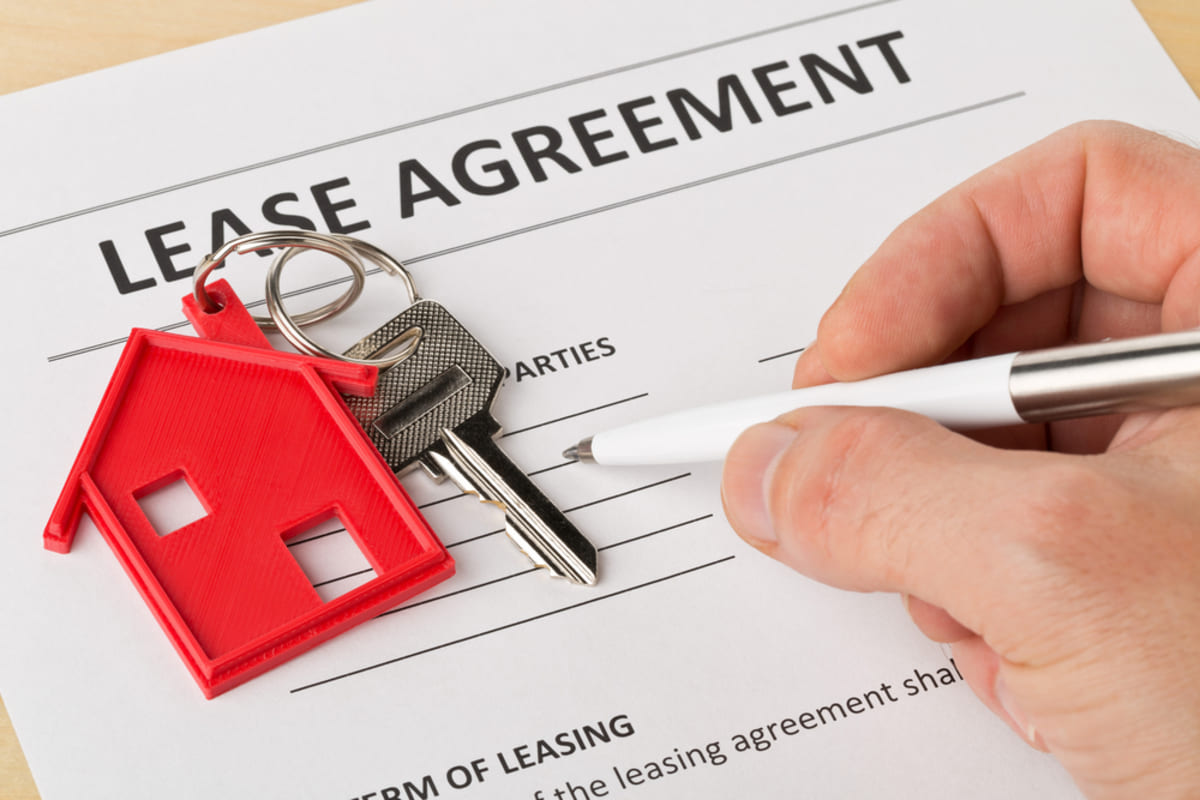Listen to the article
Property Management Tips: 10 Legal Things Every Landlord Must Know
Owning a rental property can be rewarding, but it's not without its legal complexities. To protect yourself and your tenants, you must be well-versed in property laws and regulations.
However, identifying crucial legal responsibilities that apply to you as an investor and your rental properties can be challenging without experienced insights.
So, today, our seasoned real estate investment team offers valuable Detroit property management tips focused on the legal aspects of successful rental properties, from understanding if you should use free lease agreements, avoiding discrimination claims, and keeping tenants safe in your properties.
1. Discrimination Laws and the Fair Housing Act
Discrimination in housing isn't just morally wrong; it's also illegal under federal law.
The Fair Housing Act, which is enforced by the U.S. Department of Housing and Urban Development (HUD), sets the standard here. This act prohibits discrimination against tenants or potential tenants based on specific protected categories, including race, color, religion, sex, familial status, or disability.
The implications of property owners violating these laws are severe. Financial penalties could be significant, depending on the scale of the discrimination. In addition to financial repercussions, your reputation as a landlord could be irreparably harmed, impacting your ability to attract future tenants and potentially devaluing your investment.
Rental property owners must treat all tenants and prospective tenants fairly and respectfully, regardless of their background. Moreover, it's crucial to be proactive in ensuring that any advertising or promotional materials you produce align with the Fair Housing Act.
Make sure that any images or text used do not implicitly or explicitly discriminate against any of the protected categories. This even extends to your interactions with property management staff or contractors who may be involved in the renting process.
Beyond federal law, familiarize yourself with Michigan state and local Detroit regulations as well.
1a: The Fair Credit Reporting Act
When screening potential tenants, a credit report is one of the most valuable resources at your disposal.
A tenant's credit history can offer a comprehensive view of their financial responsibility, which can inform you about their ability to meet rent payments. However, it's not as simple as running a credit check whenever you please. You must operate within the boundaries set by the Fair Credit Reporting Act (FCRA).
The FCRA mandates that you obtain the explicit written consent of the tenant before accessing their credit report. This consent usually comes as a clause in the rental application where the applicant acknowledges and agrees to the credit check. Failing to secure this permission directly violates federal law and can result in substantial legal penalties.
Once you consent, you can proceed with the credit check. However, your responsibilities don't end there. The FCRA specifies that if you decide to take "adverse action" against the applicant—such as denying the rental application, requiring a co-signer, or demanding a higher security deposit—based on information in the credit report, you must inform the tenant.
This notification should ideally be in writing and must include specific information: the name and contact details of the credit reporting agency that provided the report, a statement that the agency did not make the adverse decision, and a notice informing the applicant of their right to dispute the accuracy of the credit report within 60 days.
2. The Importance of a Legally Binding Lease
The lease agreement serves as the cornerstone of the landlord-tenant relationship. While the allure of downloading and using a free lease agreement can be tempting, it's essential to consider whether it captures all the intricate details that can safeguard you and your tenants.
An inadequate lease can leave you vulnerable to various legal complications and disputes. Therefore, a legally binding lease must be comprehensive in the details it captures. At the very minimum, it should state the monthly rental rate, the duration of the lease term, and the names of all adult tenants. 
Additionally, you may want to include specific clauses about maintenance responsibilities, security deposits, and any other terms that could affect the tenancy. This transparency sets expectations from the outset, providing a solid foundation for a mutually beneficial relationship.
Moreover, the lease agreement serves as a legally enforceable contract, which means you can turn to it to resolve any misunderstandings or disputes arising during the rental period. It's not just a document that outlines rules; it also offers a layer of legal protection. If a tenant violates any term, such as failing to pay rent or causing property damage, the lease agreement provides the basis for taking appropriate legal action.
While drafting a secure and detailed lease might seem daunting, it's crucial for peace of mind. To ensure you cover all your legal bases, you may consider consulting with a legal advisor or a professional Detroit property manager who can guide you through the complexities involved.
3. Required Disclosures
When you're in the business of renting properties, you must provide your tenants with specific information.
Required disclosures generally encompass crucial details about state laws, individual landlord policies, or even unique characteristics of the rental property. Not only is sharing this information the ethical thing to do, but it's often legally mandated, which means failing to comply can result in legal repercussions.
Landlords must inform tenants about specific state laws that could affect their tenancy. These might include regulations about rent control, the legal reasons for eviction, or even tenants' rights in case of natural disasters. By providing this information, you're not only adhering to the law but also establishing a relationship built on trust and transparency.
Alongside state laws, disclosing any unique landlord policies or practices, such as rules about renewing the lease, early termination fees, or guest policies, is essential. These terms could impact the tenant's decision to rent your property, so it's beneficial for both parties that they're shared openly.
Don't overlook property-specific disclosures, either. This could be anything from the presence of lead-based paint disclosure in older properties to the history of flooding or pest infestations. Transparency in these matters is legally required and can protect you from future disputes or possible legal claims from the tenant.
The best way to manage these required disclosures is to incorporate them directly into your lease agreement. This approach ensures that you and the tenant have a written record, enhancing the legal solidity of the disclosure.
4. Providing a Safe Environment
One of your most crucial responsibilities is to provide your tenants with a living environment that's not just comfortable but also habitable. This means ensuring all essential services, such as plumbing, heating, running water, and electricity, are consistently functional and safe. The concept behind this responsibility is rooted in a legal principle known as the "implied warranty of habitability."
The implied warranty of habitability is a non-negotiable legal requirement. This principle asserts that by renting out a property, a landlord is implicitly promising to maintain conditions fit for human habitation. Essentially, you're assuring your tenants that they will have a place to live that meets basic living standards, from working smoke detectors to a secure structure free from hazards like mold or structural deficiencies.
So, what does this mean in practical terms? For starters, if the heating system breaks down in the middle of winter, you can't simply tell the tenant to bundle up. Your legal obligation is to repair the heating system as swiftly as possible.
Ignoring or delaying action on these vital services erodes trust with your tenants and opens you up to potential legal action. Tenants could be within their rights to withhold rent, move out without notice, or even sue for damages if they can prove that you've violated the implied warranty of habitability.
5. Repair and Maintenance
When a tenant reports an issue, it's not just good customer service to act swiftly—it's often a legal obligation. Issues ranging from a leaking roof to a faulty electrical socket can seriously impact a tenant's quality of life and even pose safety risks. Therefore, you must initiate repairs and resolve the problem as promptly as possible.
This commitment to speedy and effective action should be clearly outlined in your lease agreement to avoid any ambiguity about your responsibilities as a landlord.
Additionally, a landlord who is quick to respond to problems sends a clear message that they care about their property and the well-being of their tenants. Conversely, neglecting timely repairs can strain the landlord-tenant relationship and could even lead to legal disputes or financial penalties.
Therefore, establish a straightforward protocol for how tenants should report issues and set realistic timelines for addressing them. Keep open lines of communication throughout the repair process, from acknowledging the issue to confirming its resolution.
6. Security Deposits: Dos and Don'ts
Handling security deposits can be tricky in property management, but it's critical to get it right and follow applicable security deposit laws.
Typically included in most lease agreements, these deposits serve a dual purpose: to cover default rent payments and to pay for any property damage incurred during the tenancy. While it might seem straightforward, legal guidelines dictate how you should manage and refund these funds.
One essential practice our property management company recommends is to provide your tenants with an itemized list of deductions after they move out. This breakdown should clearly specify what part of the deposit is being used for what purpose, be it overdue rent or repairs for damages. Transparency here not only builds trust but is often legally mandated.
Equally important is the need to refund the remaining balance of the deposit in a timely manner, as specified in Michigan state's laws or your lease agreement. Delays can result in legal penalties, harm your reputation, and damage relationships with tenants.
Therefore, make it a priority to handle security deposits professionally and punctually to meet legal requirements and uphold your standing as a responsible landlord.
7. Right to Privacy
Privacy is a fundamental right for tenants. Therefore, as a landlord, it's crucial to understand and respect this to maintain a harmonious landlord-tenant relationship and stay within the bounds of the law.
Unless there is an emergency, like a fire, a gas leak, or another legitimate reason, such as scheduled maintenance, entering a tenant's rental unit without providing adequate notice is generally considered an invasion of privacy.
Property owners must give tenants reasonable notice—usually 24 to 48 hours—before entering the property. The notice should specify the reason for entry, whether it's for repairs, inspections, or showing the unit to prospective tenants. Failing to abide by these requirements can lead to legal repercussions, including potential fines or a lawsuit for violating tenant rights.
Remember that your tenant's right to privacy starts when they move in. You can start your relationships with new tenants off well and show them you respect their privacy by providing a move-in checklist and staying out of their way on move-in day.
8. Dealing with Abandoned Property
When a tenant vacates your property but leaves belongings behind, it's easy to view these items as trash to be discarded. However, you're legally obligated to treat these items as abandoned property.
This entails following a specific protocol that typically involves notifying the tenant about how they can reclaim their items and informing them about any associated storage costs and the time frame within which they need to act.
This isn't just a legal necessity; it's also a matter of ethical responsibility. In some cases, the tenant may have left valuable or sentimental items unintentionally. Failing to properly notify them disregards the law, undermines trust, and can result in legal repercussions.
Make sure to document your actions meticulously, including the notification and any communication that follows. Keep a record of these communications as well as an inventory of the items left behind. This will protect you in legal disputes and demonstrate your commitment to ethical and lawful property management.
9. Criminal Activity
If you become aware of any criminal activity occurring within your rental units, you have a legal and ethical obligation to report it to the proper authorities. This isn't merely about adhering to the law; it's also about maintaining the safety and integrity of your property and the well-being of all your tenants.
Failing to report whether the activity involves drug use, violence, or other illegal actions can make you liable for consequences, including potential lawsuits or legal penalties. In essence, your role isn't just to provide housing; it's to ensure that the housing environment remains safe and lawful for everyone involved.
10. Safety Measures for Tenants
Your responsibilities as a rental property owner extend beyond collecting rent and addressing repairs; you also must ensure your tenants are safe. This duty is often defined by specific legal requirements, such as providing fire and carbon monoxide detectors, fire extinguishers, front door peepholes, and secure locks on exterior doors and windows. 
While these measures might seem like basics, our experienced property managers can tell you that overlooking them can result in significant legal repercussions and potential risks to your tenants' well-being. By proactively implementing and maintaining these safety features, you comply with the law and instill a greater sense of security and trust among your tenants.
Our Detroit Property Management Experts Help You Keep Up With Legal Responsibilities
Navigating the legalities of being a landlord can be overwhelming. However, Detroit property management experts can help!
With a wealth of experience and expertise, the team here at Own It Detroit offers comprehensive support to landlords and property owners. From crafting a legally sound lease agreement to keeping you and your properties in compliance with all regulations, we've got you covered.
Partnering with us means not only ensuring you meet all your legal obligations but also maximizing the potential revenue from your rental properties. Reach out to our seasoned real estate investing experts, and let us guide you every step of the way.
You can also learn more about managing successful rental properties by requesting a free copy of our "Expert Guide to Rental Property Management."








